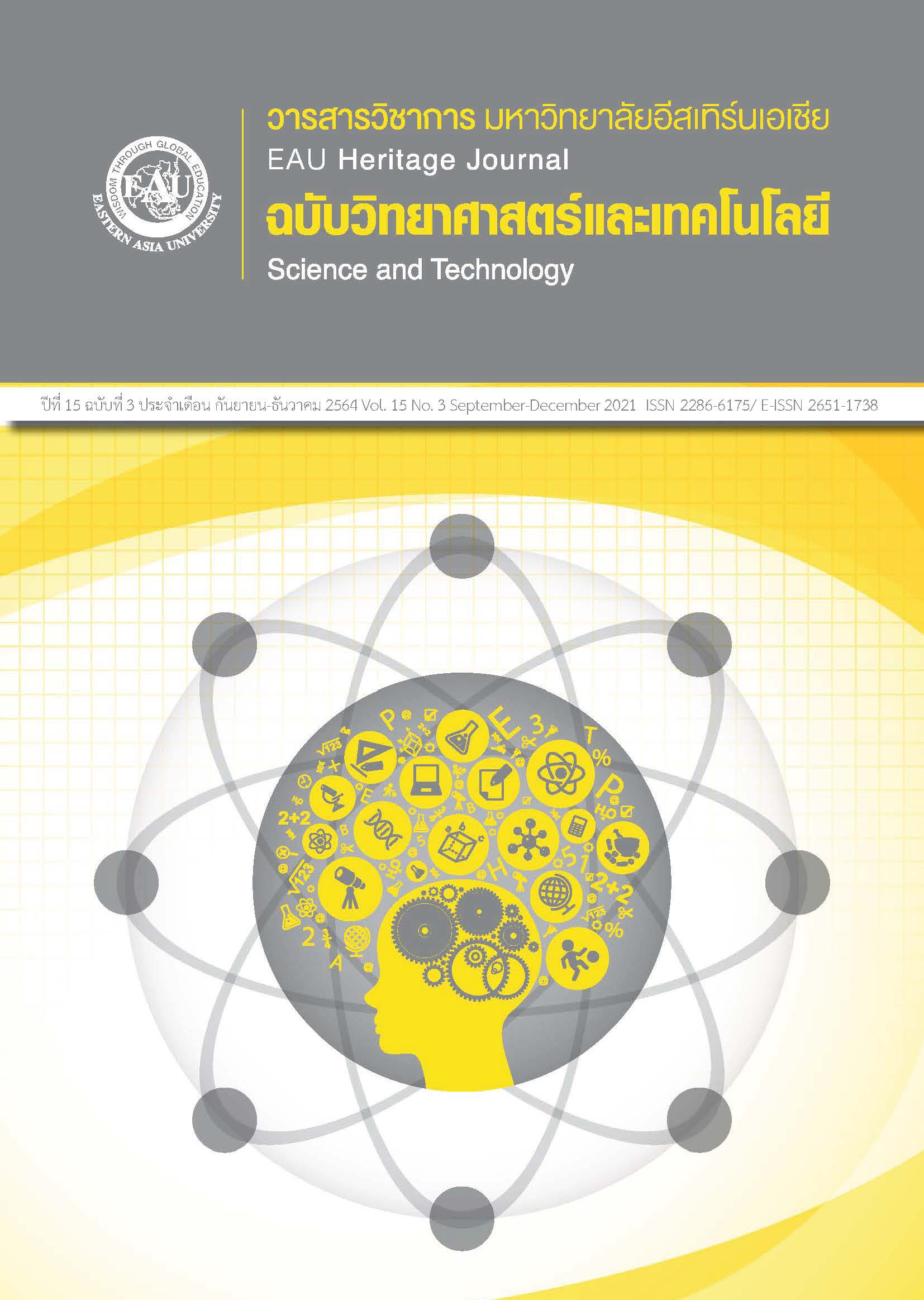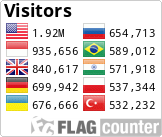การศึกษาความรู้และพฤติกรรมการบริโภคเครื่องดื่มที่มีน้ำตาล ในนักศึกษามหาวิทยาลัย
คำสำคัญ:
ความรู้; พฤติกรรม; การบริโภคเครื่องดื่มที่มีน้ำตาลบทคัดย่อ
งานวิจัยนี้มีวัตถุประสงค์เพื่อศึกษาความรู้และพฤติกรรมการบริโภคเครื่องดื่มที่มีน้ำตาลในนักศึกษามหาวิทยาลัยราชภัฏวไลยอลงกรณ์ในพระบรมราชูปถัมภ์ จังหวัดปทุมธานี แบบสอบถามจำนวน 50 ชุด ถูกนำมาใช้เป็นเครื่องมือในการสำรวจโดยประกอบด้วยข้อมูลทั่วไป ข้อมูลความรู้ และข้อมูลพฤติกรรมที่เกี่ยวกับการบริโภคเครื่องดื่มที่มีน้ำตาล ผู้วิจัยทำการสำรวจในกลุ่มตัวอย่างนักศึกษา 50 คน ซึ่งเป็นเพศชาย 35 คน (ร้อยละ 70) และเพศหญิง 15 คน (ร้อยละ30) กลุ่มตัวอย่างนักศึกษาส่วนใหญ่มีอายุอยู่ในช่วง 17-20 ปี ร้อยละ 54 และมีน้ำหนักปกติ ร้อยละ 60 ผลการวิจัยพบว่ากลุ่มตัวอย่างมีความรู้เกี่ยวกับการบริโภคเครื่องดื่มที่มีน้ำตาลอยู่ในระดับดีถึงดีเยี่ยม ด้านความถี่ในการบริโภคเครื่องดื่มที่มีน้ำตาลพบว่ากลุ่มตัวอย่างส่วนใหญ่บริโภค 1-2 ครั้งต่อสัปดาห์ โดยเครื่องดื่มที่นิยมบริโภค ได้แก่ โยเกิร์ตพร้อมดื่ม 28 คน (ร้อยละ 56 ) ชานมไข่มุกหรือชา 22 คน (ร้อยละ 44) และเครื่องดื่มน้ำอัดลม 21 คน (ร้อยละ 42) นอกจากนี้ยังพบว่านักศึกษาบริโภคน้ำผักและผลไม้ 20 คน รวมถึงนมปรุงแต่งรส 22 คน โดยมีความถี่ในการบริโภค 3-4 ครั้งต่อสัปดาห์ (ร้อยละ 40 และ 44 ตามลำดับ) อย่างไรก็ตามกลุ่มตัวอย่างนักศึกษาไม่ดื่มกาแฟและเครื่องดื่มชูกำลัง แม้ว่านักศึกษาส่วนใหญ่มีความรู้ระดับดีเยี่ยมแต่ยังคงมีพฤติกรรมการบริโภคเครื่องดื่มที่มีน้ำตาลสูง ดังนั้นจึงควรสร้างความตระหนักรู้ของนักศึกษาเพื่อให้เกิดการปรับพฤติกรรมการบริโภคที่ดีขึ้นอย่างที่ยั่งยืน
เอกสารอ้างอิง
Agarwal, S., Fulgoni Iii, V. L., & Welland, D. (2019). Intake of 100% fruit juice is associated with improved diet quality of adults: NHANES 2013-2016 Analysis. Nutrients, 11(10), 2513. https://doi.org/10.3390/nu11102513
Ahmad, N., Zuki, A-M M., Azahar, N. A., Khor, B. H., & Minhat, H. S., (2019). Prevalence and factors associated with sugar-sweetened beverage intake among undergraduate students in a public university in Malaysia. Pakistan Journal of Nutrition, 18(4), 354-363. doi: 10.3923/pjn.2019.354.363
Anari, R., Amani, R., & Veissi, M. (2017). Sugar-sweetened beverages consumption is associated with abdominal obesity risk in diabetic patients. Diabetes & Metabolic Syndrome: Clinical Research & Reviews, 11(1), 675-678. doi: 10.1016/j.dsx.2017.04.024.
Bleich, S. N., & Vercammen, K. A. (2018). The negative impact of sugar-sweetened beverages on children’s health: an update of the literature. Biomed Central, 5(6), 2-27. doi: 10.1186/s40608-017-0178-9.
Department of disease control Ministry of Public Health Thailand. (2011). Excessive sugar intake. Retrieved from http://www.thaincd.com/document/file/download/knowledge/ExcessiveSugar.pdf. (in Thai)
Facey, A., Dilworth, L., & Irving, R. (2017). A review of the leptin hormone and the association with obesity and diabetes. Journal of Diabetes and Metabolism, 8(3), 2-3. doi:10.4172/2155-6156.1000727
Gadah, N. S., Kyle, L. A., Smith, J. E., Brunstrom, J. M., & Rogers, P. J. (2013). Sugar-containing drinks. Why do men compensate more than women?. Appetite, 71, 475. doi:10.1016/j.appet.2013.06.025
Hedrick, V. E., Comber, D. L., Estabrooks, P. A., Savla, J., & Davy, B. M. (2010). The beverage intake questionnaire: determining initial validity and reliability. Journal of the American Dietetic Association, 110(8), 1227–1232. https://doi.org/10.1016/j.jada.2010.05.005
Lim, L., Banwell, C., Bain, C., Banks, E., Seubsman, S. A., Kelly, M., Yiengprugsawan, V., & Sleigh, A. (2014). Sugar sweetened beverages and weight gain over 4 years in a Thai national cohort--a prospective analysis. PloS One, 9(5), e95309. https://doi.org/10.1371/journal.pone.0095309
Luce D. D., & Motil K. J. (2020). Adolescent eating habits. Retrieved from https://www.uptodate.com/contents/adolescent-eating-habits
Malik, V. S., Schulze, M. B., & Hu, F. B. (2006). Intake of sugar-sweetened beverages and weight gain: A systematic review. The American Journal of Clinical Nutrition, 84(2), 274–288. https://doi.org/10.1093/ajcn/84.1.274
Mingmai, K., Detboon, P., & Jumneansuk, A. (2016). The survey of health behaviors among students in Valaya Alongkorn Rajabhat University Under the Royal Patronage, Pathumthani Province. Proceeding of the 7th Acedemic Meeting National and Imternational Conference, Suan Sunadha Rajabhat University (pp. 2598-2611). Bangkok: Suan Sunadha Rajabhat University. (in Thai)
Narain, A., Kwok, C. S., & Mamas, M. A. (2016). Soft drinks and sweetened beverages and the risk of cardiovascular disease and mortality: a systematic review and meta-analysis. International Journal of Clinical Practice, 70(10), 791–805. https://doi.org/10.1111/ijcp.12841
Park, S., Ayala, G. X., Sharkey, J. R., & Blanck, H. M. (2019). Knowledge of health conditions associated with sugar-sweetened beverage intake is low among US Hispanic Adults. American Journal of Health Promotion: AJHP, 33(1), 39–47. https://doi.org/10.1177/0890117118774206
Phoowachinnapong, R., Lowirakorn, S., & Uttamavatin, P. (2017). Consumption behavior of Calcium rich nutrient by students of Faculty of Public Health, Khon Kaen University. KKU Journal for Public Health Research, 10(3), 23-31. (in Thai)
Putthisai, D., & Sasithanakornkae, S. (2019). Online social media accession and health literacy of generation Y. Phranakhon Rajabhat Research Journal (Humanities and Social Sciences), 14(1), 124-141. (in Thai)
Rippe, J. M. (2013). The metabolic and endocrine response and health implications of consuming sugar-sweetened beverages: findings from recent randomized controlled trials. Advances in Nutrition an International Reveiew Journal, 4(1), 677–686. doi:10.3945/an.113.004580.
Taş, F. (2020). Knowledge attitudes and behaviors of adult individuals about high fructose corn syrup consumption; cross sectional survey study. Clinical Nutrition ESPEN, 40, 179–186. https://doi.org/10.1016/j.clnesp.2020.09.025
Vichayanrat, T., Amornsuradech, S., & Karawekpanyawong, R. (2020). Consumption of sugar-sweetened beverages and knowledge among dental students. Khon Kaen University Dental Journal, 23(2), 11-21. (in Thai)
Wang, Y. C., Bleich, S. N., & Gortmaker S. L. (2008). Increasing caloric contribution from sugar-sweetened beverages and 100% fruit juices among US children and adolescents, 1988-2004, Pediatrics, 121(6), 1604-1614. doi:10.1542/peds.2007-2834.
World Health Organization Expert Consultation. (2004). Appropriate body-mass index for Asian populations and its implications for policy and intervention strategies. Lancet (London, England), 363(9403), 157–163. https://doi.org/10.1016/S0140-6736(03)15268-3
World Health Organization (WHO). (2014). Guideline: Sugars Intake for Adults and Children. Geneva: World Health Organization







